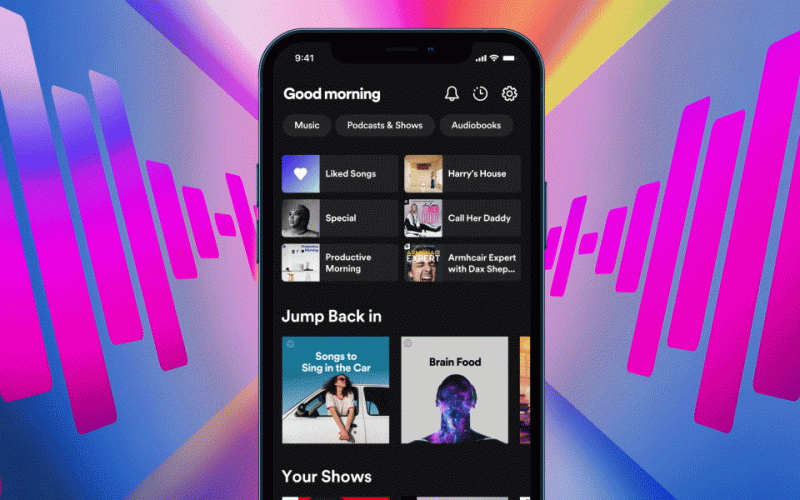Introduction
Mobile apps have become a major part of our daily lives. In 2025, entertainment apps are at the forefront, offering everything from watching movies and TV shows to listening to music, gaming, and connecting with friends. In this article, we will look at the top entertainment apps of 2025, discuss what makes them popular, and compare their features.
The Growth of Entertainment Mobile Apps
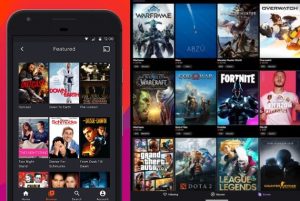
Entertainment apps have come a long way since their early days. Years ago, apps were simple, offering basic features like streaming music or watching videos. Today, these apps are more advanced, using new technologies like artificial intelligence (AI) and virtual reality (VR). These changes make entertainment apps more fun and personalized, giving users better experiences.
Key Trends in Entertainment Apps in 2025
- AI Recommendations: Many apps now use AI to suggest content based on what you like, making it easier to find things you will enjoy.
- Virtual Reality (VR) and Augmented Reality (AR): These technologies are making apps more interactive and immersive, especially in gaming and video streaming.
- Live Streaming: Watching events or shows in real time has become very popular, and many apps now allow users to stream live content.
- Personalized Content: Apps are becoming smarter and can give suggestions based on your previous activity, creating a more personalized experience.
Popular Entertainment Apps in 2025
1. Netflix
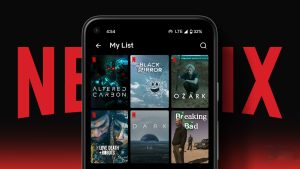
Netflix is still one of the most popular entertainment apps. In 2025, it continues to lead in streaming movies, TV shows, and original content. It uses AI to suggest shows and movies based on what you’ve watched before.
Netflix Features in 2025:
- A huge variety of movies, TV shows, and original content
- Personalized recommendations using AI
- High-definition video quality
- Interactive content, such as shows where you can choose what happens next
2. TikTok
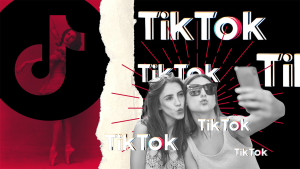
TikTok is no longer just for short videos. By 2025, TikTok has added many new features, like augmented reality (AR) filters, live streaming, and even shopping. It’s an app where people can watch and create videos, interact with others, and even buy products.
TikTok Features in 2025:
- AR filters to enhance videos
- Shopping features that allow you to buy products from videos
- Live streaming to interact with creators
- Personalized video feed based on your interests
3. Spotify
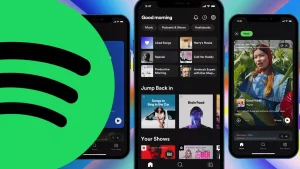
Spotify is the go-to music app for many people. By 2025, Spotify is still a favorite, offering everything from music to podcasts. It uses AI to recommend music you might like based on your listening history.
Spotify Features in 2025:
- AI-powered music recommendations
- High-quality sound, including spatial audio
- Personalized playlists and daily mixes
- Podcasts on a wide variety of topics
4. YouTube

YouTube is not just for watching videos anymore. By 2025, it has become an entertainment powerhouse. With live streaming, AR filters, and short videos, YouTube has something for everyone.
YouTube Features in 2025:
- Live streaming for real-time interaction
- YouTube Shorts for quick video content
- VR and AR features for immersive video experiences
- Wide variety of content, including gaming, music, and tutorials
5. Twitch
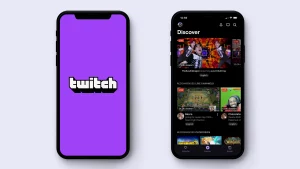
Twitch is best known for live-streaming video games, but by 2025, it has expanded its content. It now includes streams of music, talk shows, and even creative arts. Twitch offers real-time interaction with viewers and has become a place where content creators can earn money.
Twitch Features in 2025:
- Live streaming with audience interaction
- Streaming of a wide range of content beyond gaming
- Options to subscribe and donate to creators
- Virtual events and content that engages viewers
The Convenience of Entertainment Apps
One of the best things about entertainment apps is their convenience. You can access these apps anytime and anywhere as long as you have a smartphone and an internet connection. Whether you’re waiting for a bus, sitting at home, or traveling, you can easily open an app and enjoy your favorite content. This convenience has made entertainment apps a favorite choice for people who want to relax and enjoy something quickly, without needing a TV or computer.
The Growth of Interactive Content
Interactive content is becoming more popular in entertainment apps. These features allow users to be a part of the content they are watching or playing. For example, in interactive TV shows on Netflix, you can choose what happens next in the story. Video games often have interactive elements where players can make choices that affect the outcome of the game. This trend of interactive content makes the experience more fun and engaging for users, offering something new compared to traditional forms of entertainment.
The Impact of 5G on Entertainment Apps
The rollout of 5G technology is changing the way we use entertainment apps. With faster internet speeds, 5G allows users to stream high-quality videos, play games, and download content much quicker than before. This is especially helpful for users who enjoy watching movies and TV shows in high definition or playing online games. As 5G becomes more widely available, the experience of using entertainment apps will improve, making content more accessible and enjoyable.
The Role of Data in Shaping Entertainment Choices
Data is a powerful tool that entertainment apps use to make the user experience better. By tracking what users watch, listen to, or play, apps can understand their preferences and offer more relevant content. For example, if you regularly watch action movies, an app might recommend similar films to you. However, while data helps personalize the experience, it also raises concerns about privacy. Users are becoming more aware of how their data is being used, and entertainment apps must find ways to balance personalization with protecting users’ privacy.
The Influence of Artificial Intelligence on Content Creation
Artificial intelligence (AI) is playing a growing role in creating and improving entertainment content. Apps like Netflix and YouTube use AI to recommend movies, shows, and videos based on what you have watched before. AI can also help create new content by analyzing what people enjoy and creating similar content. This technology has made it easier for entertainment apps to give users a personalized experience, and as AI continues to evolve, it will have an even bigger impact on how content is created and shared.
The Importance of Cross-Platform Access
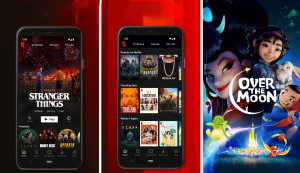
One of the biggest advantages of entertainment apps is their ability to work across different devices. Many apps allow users to switch between their phone, tablet, and computer without losing progress or content. For example, you can start watching a show on your phone, then continue it on your TV or laptop. This flexibility makes entertainment apps more convenient and ensures that users can enjoy their content no matter where they are or what device they are using.
The Role of User Reviews and Ratings
User reviews and ratings play a big role in helping people choose which entertainment apps to use. Before downloading an app, many people check the reviews to see what others think. High ratings and positive reviews can encourage new users to try the app, while negative feedback can push them away. Developers pay attention to these reviews to make improvements and fix any problems users face. This system helps create better apps and ensures that users have a good experience.
The Importance of High-Quality Content
To attract and keep users, entertainment apps need to offer high-quality content. Whether it’s movies, music, podcasts, or games, people expect to find content that’s enjoyable and well-made. Popular apps like Netflix and Spotify focus on providing a wide selection of high-quality content, including exclusive shows and movies, to keep users coming back. The better the content, the more likely people are to stick with an app, making it essential for entertainment apps to constantly update and improve their offerings.
The Environmental Impact of Entertainment Apps
As entertainment apps become more popular, they also have an impact on the environment. Streaming videos and playing games use a lot of data, which requires large data centers to store and process information. These data centers consume a significant amount of energy, contributing to carbon emissions. Many companies are aware of this issue and are working on making their apps more energy-efficient. In the future, we may see more apps and services focused on reducing their environmental impact, which will help make the entertainment industry more sustainable.
The Challenges of Entertainment Mobile Apps
Despite their popularity, entertainment mobile apps face some challenges. One of the main challenges is the competition between apps. With so many apps offering similar services, it can be difficult for users to choose the right one. Additionally, privacy and security are concerns, as many apps collect personal data to offer better recommendations. There is also the issue of internet access—streaming high-quality content requires a fast and stable connection, which may not always be available.
The Future of Entertainment Mobile Apps in 2025 and Beyond

Entertainment apps will continue to improve in 2025 and beyond. As AI, AR, and VR technologies evolve, apps will become even smarter and more interactive. We can expect more live streaming, better personalization, and exciting new features that enhance how we consume entertainment.
Netflix and YouTube will remain big players, but new platforms like TikTok and Twitch will keep pushing the boundaries of what entertainment apps can do. As mobile apps continue to grow, they will not just be for watching content, but for creating and interacting with others too.
Comparing the Most Popular Entertainment Apps
| Feature | Netflix | TikTok | Spotify | YouTube | Twitch |
|---|---|---|---|---|---|
| Content Type | Movies, TV Shows, Originals | Short-form videos, Challenges | Music, Podcasts | Videos, Shorts, Live Streaming | Live Streaming, Gaming, Music |
| AI Recommendations | Yes | Yes | Yes | Yes | Yes |
| Live Streaming | Limited | Yes | Yes (Podcasts, Live Shows) | Yes | Yes |
| AR/VR Features | Yes (select content) | Yes (AR filters) | Yes (Spatial Audio) | Yes (360° videos) | Yes (Virtual Events) |
| Monetization Options | Subscriptions | Ads, Creator Fund | Subscriptions, Ads | Ads, Channel memberships | Subscriptions, Donations |
| Personalized Content | High | High | High | High | High |
Conclusion
Entertainment mobile apps are more popular than ever, and 2025 promises even more exciting changes. From Netflix’s huge collection of movies to TikTok’s creative videos and Spotify’s personalized playlists, there is something for everyone. These apps are constantly improving and changing the way we enjoy entertainment. Whether it’s streaming, gaming, or social media, entertainment apps will continue to shape how we spend our free time for years to come.






